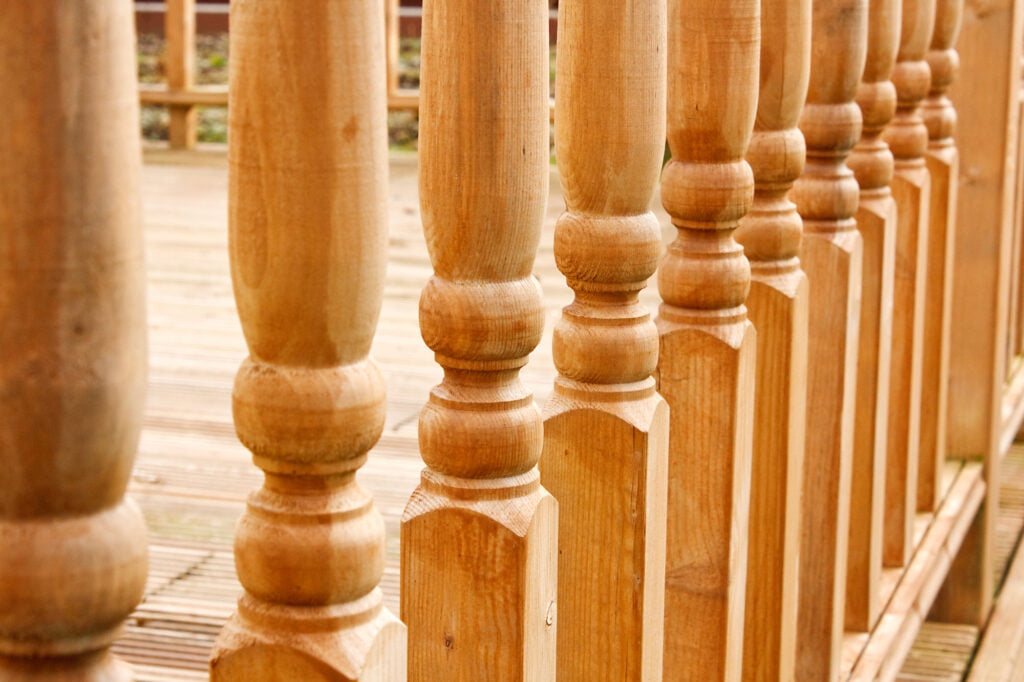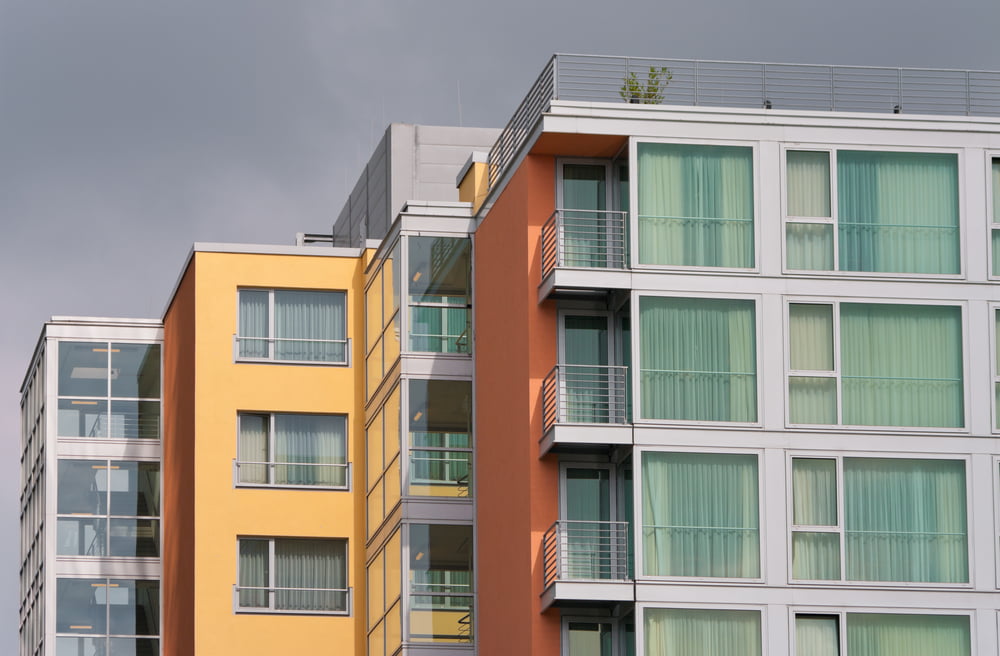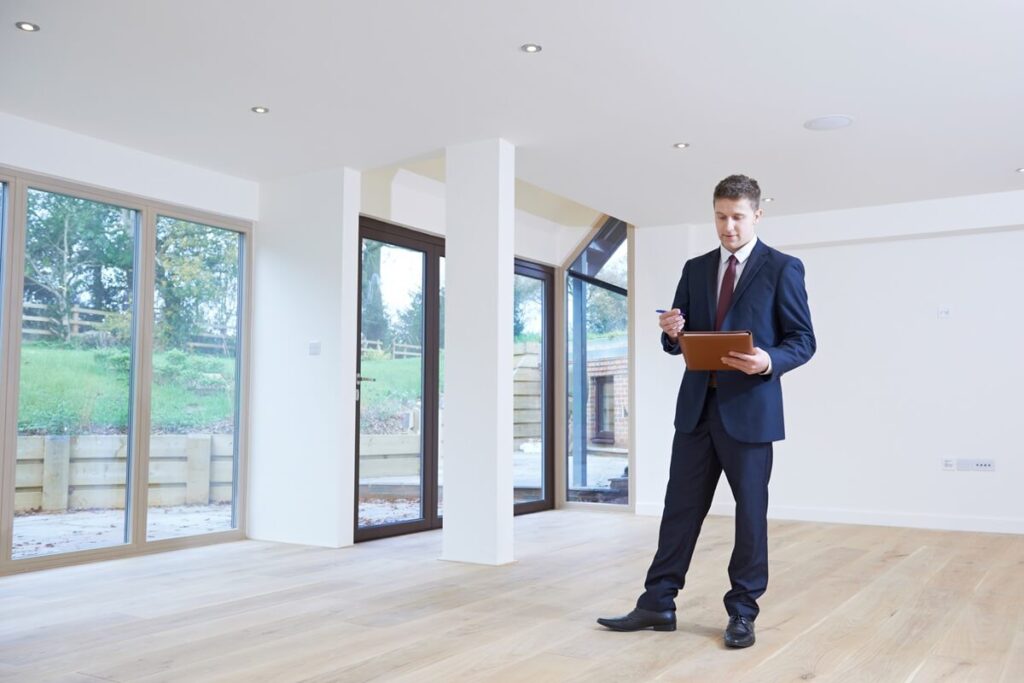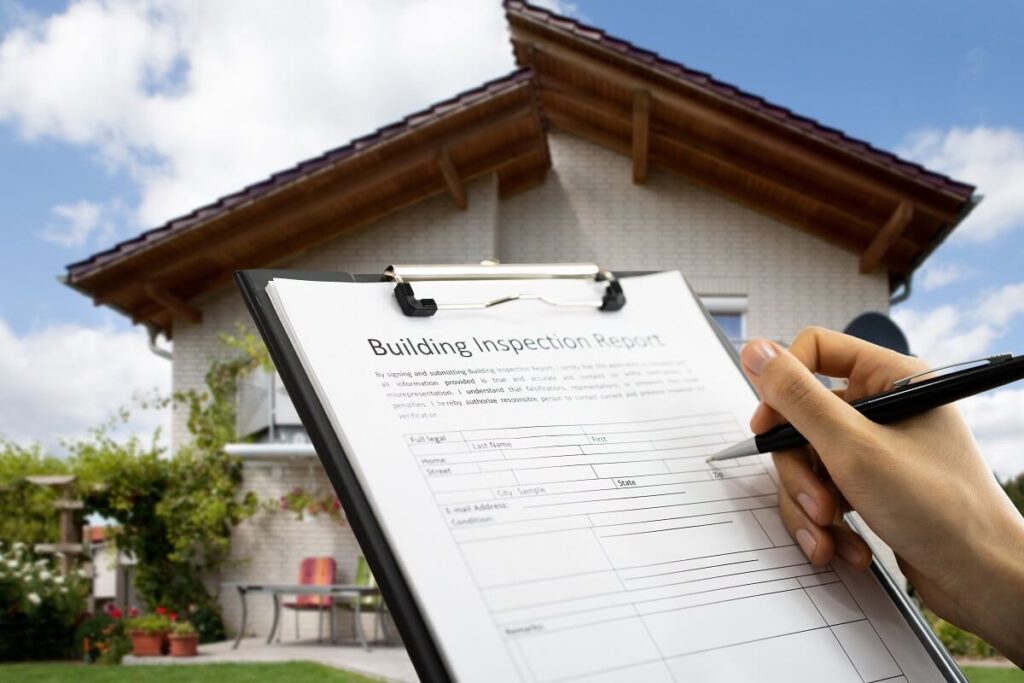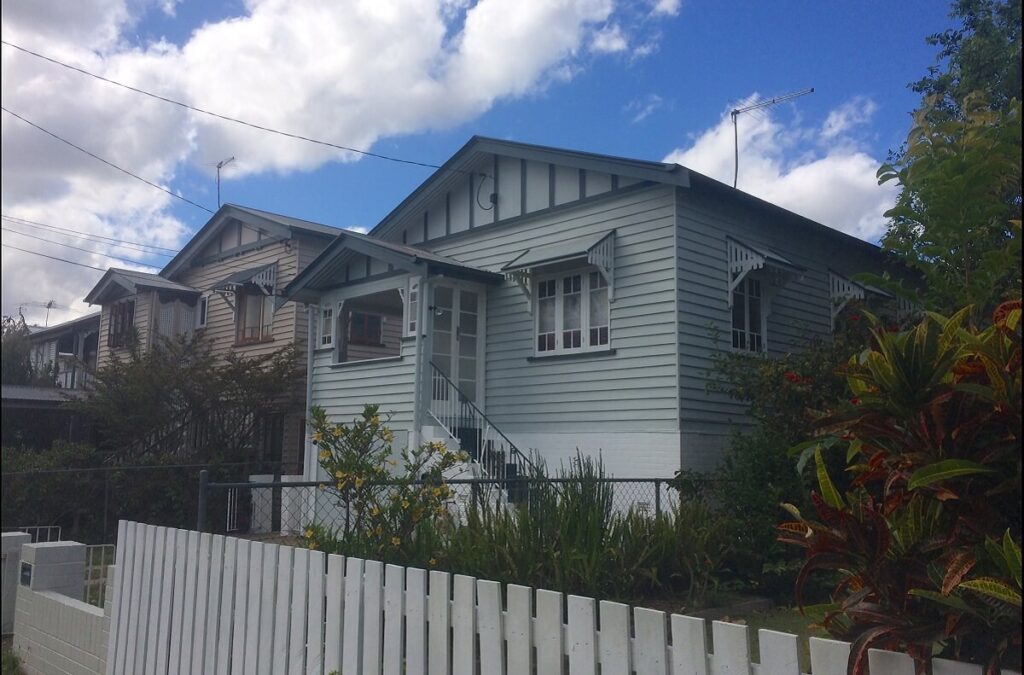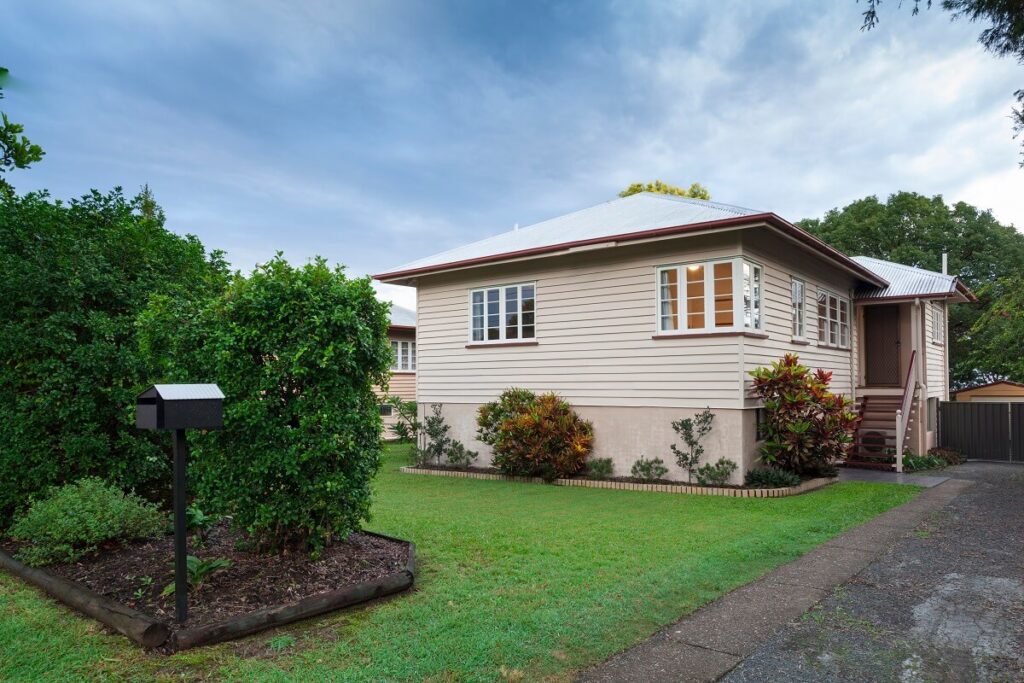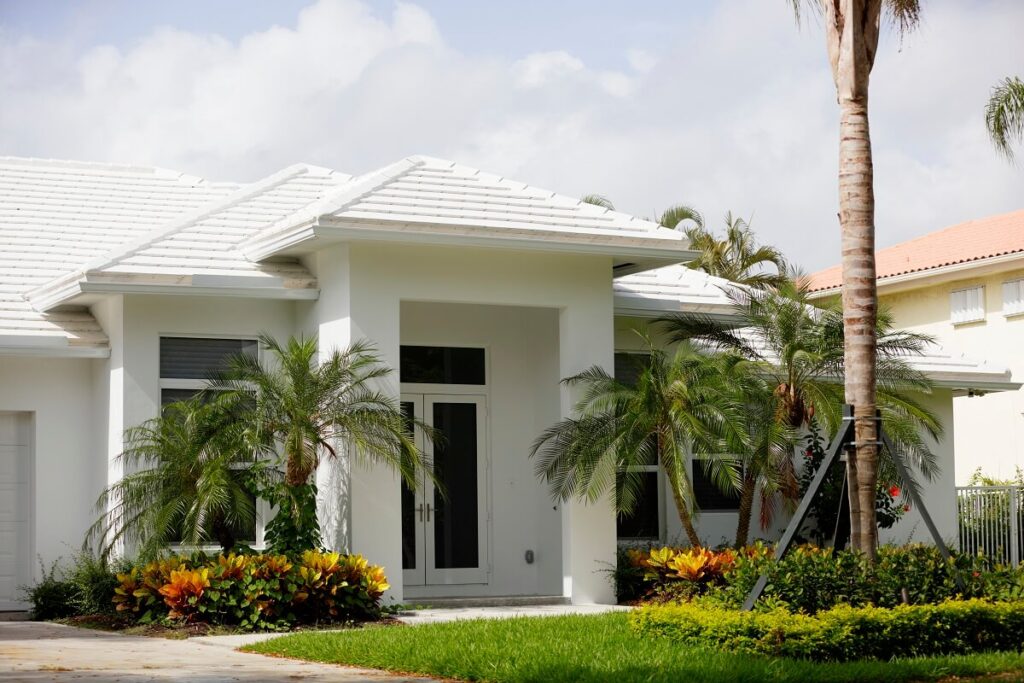Updated July 2024 by Andrew Mackintosh
The last few years I’ve seen some terrible practices that I had never once experienced in my 30 years doing Brisbane building inspections. I have witnessed agents forbid buyers from having the property inspected. I have seen sellers opt to sell “sight unseen” using lockdowns as an excuse to discourage inspections. The young generation entering the market are dealing with more setbacks than ever before and they’re under pressure to sign away their legal rights. So, this is my advice on the legalities of a pre purchase building inspection.
Building Inspection Laws in Queensland
If you are a Brisbane first home buyer, making a smart decision means knowing the home buying process, laws and your rights. After all, it is an investment of epic proportions. In fact, it will probably be the single largest purchase you’ll make in your entire lifetime. The building inspection laws in Queensland require pre-purchase inspection reports which are designed to protect you from dodgy operators and give you real peace of mind.
Andrew’s Expert Advice on Building Inspection Laws: You may feel a lot of pressure from the vendor and real estate agent to buy the home. Of course, their job is to sell, which means that they will paint the home in the best light they can. But lucky for you, with 30 years of experience under my belt, I am on your side. I want you to be fully aware of the defects of the home and make an informed decision. You need someone that is up to date on current building standards with the right qualifications and licences – and I’m your man.
It makes sense to enlist the services of a building inspector to carry out an assessment of the property and report back on any defects: the dirty little secrets that will chew through your finances or even place your family’s lives at risk. It’s only natural that you will rely heavily on their report in making a decision as to whether to go ahead with the purchase or back away.
There’s an awful lot riding on the professionalism, experience and thoroughness of your building inspector. It’s easy to see why mistakes made by a building inspector in a pre-purchase inspection can be incredibly costly, both financially and emotionally.
You have the legal right to a building and pest inspection
It is vitally important that the Building and Pest Inspection clause be completed in the REIQ contract.
Are all dates filled in accurately?
If the dates are left blank then the contract may not be subject to Building and Pest Inspections.
Unless advised by your solicitor, the standard clause for Building and Pest Inspections should not be altered and must be dated indicating the timeframe in which the Building and Pest inspections should be completed.
In part, the Building and Pest Inspection clause within the REIQ contract states that the inspection must be completed by the due date and on terms satisfactory to the buyer. Whilst the house purchaser must act reasonably, the term “satisfactory to the purchaser” allows you grounds to renegotiate the costs involved in rectifying issues detected within a Building or Pest Inspection Report or to terminate the contract altogether should the faults be significant.
Has the Building and Pest Inspection Clause been changed?
In some instances this inspection clause has been changed to indicate that any form of renegotiation or termination of the contract could only be undertaken should significant structural fault or failure be detected. If this particular clause is accepted within the contract it would make it almost impossible to renegotiate or terminate the contract based on the findings within a Building or Pest Inspection Report unless the property was literally about to collapse.
Should I engage a solicitor?
In all instances we would recommend a solicitor be engaged to peruse the contract prior to signing.
We would also recommend a 14 day Building and Pest Inspection clause. This will allow you time to digest the information in the building and pest reports so that you are not rushed into making a decision.
Once you are ready to engage Building and Pest Inspectors, we recommend using this free checklist to help you choose a company you can trust.
Advice for First Home Buyers
It’s a hard slog and you’re probably desperate to just find a property but do not let pushy agents convince you to sign away your rights, or offer you a “free” inspection by their building inspector. That inspector works for them, not for you. A seller’s inspection is all about minimising the truth, a buyer’s inspection is uncovering every detail.
I’ve penned a few items to help first home buyers get through this nightmare. Hope this helps:
First Home Buyer Frequently Asked Questions
Who are the major players in this process?
If you’re new to buying a property, it can be hard to get your head around the major players in the process that you might be dealing with.
You will be dealing with real estate agents who may be trying to offer you advice on which conveyancer to use and where to get a building and pest inspection from.
You might think that your conveyancer can assist in giving you advice as to whether there might be any defects in the property, but that’s not the case at all.
The Real Estate Agent
Make no mistake, the real estate agent is paid for by the vendor and has a vested interest in seeing the property sold for the best price in the quickest time – with the least renegotiations. There is the potential for building inspectors and conveyancers who advertise with real estate agents to have incentives (like the promise of repeat referrals) to provide reports and advice that won’t lead to a renegotiation on the sale price.
Always engage independent building and pest inspectors and conveyancers to assist you with the purchase of your property.
The Conveyancer
A conveyancer is the person (or company) handling the legal transfer of the title in the property from the vendor (the person selling the property) to you, the purchaser (the person buying the property) or your mortgagee (your bank or finance company). They can assist you to negotiate what can be a confusing process by assisting with the preparation of the necessary paperwork, calculation of adjustments (the dividing up of the bills to be paid such as gas, rates and electricity between the parties), the handling of the cheques and settlement (where cheques are exchanged and keys handed over). They’ll also deal with the Land Titles Office on your behalf in the post-settlement period to ensure that the transfer takes place and that the relevant taxes and duties are paid. Throughout this process, they’ll never even set foot on the property.
The Building Inspector
A building inspector plays a completely different role in this process. A building inspector is engaged by the would-be purchaser of a home to carry out a thorough inspection of the property for defects. Their role will extend to giving a verbal report, often on the same day as the inspection, and preparing a very detailed report documenting any defects in, or problems with, the property.
In some cases, a building inspection will also be organised by the vendor prior to putting a house on the market. That way, they can see what they need to rectify before selling the property. As a purchaser you should never rely on a report supplied by the vendor – it has been paid for by them and is likely to contain bias which favours the vendor.
What a building inspector is supposed to do
A building inspector is supposed to carry out an objective, unbiased and thorough inspection of all aspects of the property with the intention of identifying minor and major defects. This allows you to quickly make an informed choice about proceeding—or not—with the purchase of the building. A good pre-purchase inspection report will enable you to factor in those additional costs. Armed with a thorough report, you’ll also have greater bargaining power in the negotiation process and in getting the property at a price you’re happy to pay.
A good building inspector will provide a comprehensive report incorporating photographs documenting the problem areas detected, as well as an indication as to what is involved in carrying out the remedial work necessary to bring the building up to standard.
How building inspectors carry out pre-purchase inspections
The scope of work that can be carried out by a building inspector in a pre-purchase inspection is set out in the Queensland Building and Construction Commission’s (QBCC) Completed Residential Building Inspection scope of work. Essentially, it adopts the Australian Standard (AS 4349.1 – 2007 – Inspection of Buildings – Pre-purchase Inspections – Residential Inspections).
In summary, a comprehensive pre-purchase inspection will include a non-invasive inspection of the property’s interior, exterior, roof void, roof surface and the subfloor. A building inspector cannot damage the property when they carry out an inspection, but they can use non-invasive technology to assist them, such a thermal imaging or infra-red cameras. As they carry out the inspection, a thorough building inspector will take photos and document the problem areas, and these photographs will be contained in their written report. This Sample Report gives you some indication of the level of detail you should expect to see in a building inspection report.
The long, long road to the top—becoming a building inspector
Anyone can call themselves a building inspector, but obtaining the necessary qualifications and licence is a long and arduous process.
Licensing of building inspectors
One of the ways that you can differentiate between a shonky operator and a genuine building inspector is to insist on seeing their licence. Your building inspector should have a current licence from the Queensland Building and Constructions Commission (QBCC). There are many different categories of building inspection licence. In relation to pre-purchase building inspections, your building inspector should hold a Completed Residential Building Inspector Licence.
Would-be building inspectors must attain relevant qualifications and experience prior to making an application to hold a licence of this nature.
How licences are issued—The Queensland Building and Construction Commission
The Queensland Building and Construction Commission (QBCC) is the principal regulatory body that covers building inspectors. The QBCC was established by the Queensland Building and Construction Commission Act 1991 (Qld) and the Queensland Building and Construction Commission Regulations 2003. It replaces the old Queensland Building Services Authority. You can read the relevant legislation here.
The QBCC oversees the issuing of licences to builders as well as building inspectors. It also sets out a process for dealing with complaints against building inspectors. It establishes a series of punitive measures including a system of demerit points that can ultimately see building inspectors lose their licence.
Building inspector qualifications
Why is the licensing of builders relevant to building inspectors? Because there are only two entry streams to the profession:
- Qualified builders opting for a career change or diversifying into carrying out inspections. Builders who are looking to become building inspectors must hold the appropriate QBCC licence: Builder Low Rise, Builder Medium Rise or Builder Open Licence.
- Building surveyors, assistant building surveyors or building surveyor technicians. They must have attained accreditation through the Australian Institute of Building Surveyors or a similarly recognised qualification.
Many building inspectors come from a background as a builder. This normally means that they have completed an apprenticeship in the building and construction industry (often as bricklayers or carpenters), before furthering their career by completing additional qualifications such as a Certificate IV or Diploma in Building and Construction (Building) and have attained their builder’s licence.
A builder or surveyor looking to become a licensed building inspector must have also worked for at least five years in the industry before applying to undertake an approved course in order to become a licensed building inspector.
The Completed Residential Building Inspector’s course
This course is the final prerequisite for obtaining a pre-purchase building inspection licence. Courses are offered by a number of education providers including the Institute of Building Consultants.
The course covers topics such as how best to carry out an inspection, the writing of a report, the law that applies, dealing with the public and the building code of Australia, insurance, workplace health and safety and the QBCC dispute resolution process.
The Institute of Building Consultants
The Institute of Building Consultants is a sub-division of the Master Builders association of Queensland. Membership of Master Builders and the Institute of Building Consultants is voluntary, but also highly sought after. Applicants must satisfy rigorous prerequisites before membership will be granted.
Membership of the Institute of Building Consultants demands continuous learning on the part of a building inspector so that they remain up-to-date with the latest industry developments.
How to avoid a dodgy pre-purchase inspection
Unfortunately, you often get what you pay for. We’ve seen some shocking evidence that shonky building inspectors are still out there … And they’re wreaking havoc on an unsuspecting public. Don’t become another victim.
Always insist on seeing a building inspector’s licence. You can check online with the QBCC as to its currency. Ask for references and proof of current professional liability insurance. Membership of Master Builders is an excellent recommendation in and of itself, due to the stringent membership requirements. Go even further and enquire about their background and experience. A good building inspector has nothing to hide. Use this FREE checklist to determine whether the building inspector you engage will meet all your needs.
Action Property Inspections has over 28 years’ experience in carrying out thorough and professional inspections and preparing detailed, unbiased reports with a very quick turnaround. Make a booking online or call us today to discuss your pre-purchase building inspection needs on (07) 3201 2666 or freecall 1800 642 465.


